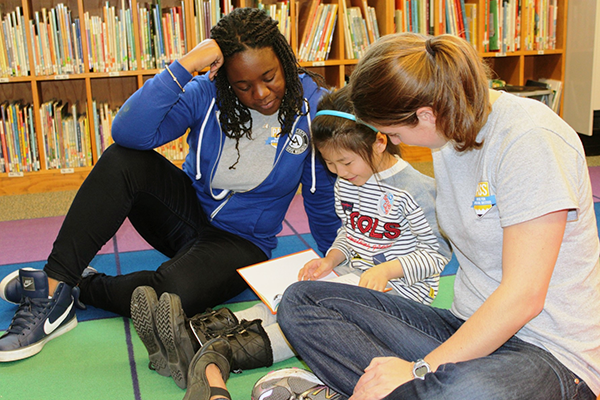In response to increasing need within Wisconsin’s pre-Kindergarten through secondary education system to understand how educational interventions work and may be improved, the Wisconsin Center for Education Research, part of UW–Madison’s School of Education, has created the Wisconsin Evaluation Collaborative (WEC).
WEC is a growing community of experienced program evaluators from UW–Madison who work in partnership with school districts, professional associations, CESAs, state and federal agencies, and foundations to determine the effectiveness of education initiatives and how they can be continuously improved.
“WEC functions as a clearinghouse of evaluators so Wisconsin educators can more effectively access relevant expertise at UW–Madison. This structure allows us to respond quickly to evaluation requests, and also, to schools and districts that might not have the capacity for conducting program evaluations,” says Robin Worth, a WEC researcher/evaluator who is working closely with WEC co-directors Annalee Good, Bradley Carl and Steve Kimball.
Worth says that WEC evaluators offer their clients a wealth of collective expertise in many areas of education, such as digital learning, special education, school growth measures, accountability systems, tutoring, teacher and principal leadership, district/school communications, family engagement and career planning. Organizations can contract with WEC for a host of different evaluation services—“Anything from consultation to the development of a logic model or research questions, to a full-scale evaluation and everything in between,” says Worth to explain WEC’s bandwidth. “Moreover, our mission involves forming partnerships with our clients to help build their own internal capacity.”
For many agencies and education-focused community organizations, program evaluations are a necessary component to receiving local, state and federal funding. Jessica Kessler, a program officer for Serve Wisconsin, which administers federal AmeriCorps funding to 25 programs across the state, says: “It is a requirement for all our programs that have been funded for at least four years to conduct an evaluation to see if the program is working or not,” Kessler says. “However, it is often very costly and very small agencies don’t have the ability to conduct their own evaluations.”
Several of Kessler’s clients, including Dane County Human Services and the United Way of Dane County, already have contracted with WEC to perform mandatory program evaluations. “Because these programs are education-based, it made sense to work with someone with the expertise to lead that journey,” she says.
WEC also has created an evaluation clinic to address the dual purpose of providing training for graduate students—and to meet the evaluation needs of smaller, education-related programs in Dane County. The WEC Clinic is staffed with trained graduate student fellows from UW−Madison’s School of Education and directed by WEC co-director Good.
WEC will continue to focus most of its work on schools, districts and organizations in Wisconsin, with some education-based partners selected from outside the state.
By Lynn Armitage
Wisconsin Evaluation Collaborative Contacts:
Annalee Good, co-director
Wisconsin Evaluation Collaborative, University of Wisconsin-Madison
608.262.2063
annalee.good@wisc.edu
Bradley Carl, co-director
Wisconsin Evaluation Collaborative, University of Wisconsin-Madison
608.263.3040
bradley.carl@wisc.edu
Steven Kimball, co-director
Wisconsin Evaluation Collaborative, University of Wisconsin-Madison
608.265.6201
steven.kimball@wisc.edu
Robin Worth, Associate Researcher & Evaluator
Wisconsin Evaluation Collaborative
608.890.2034
robin.worth@wisc.edu

